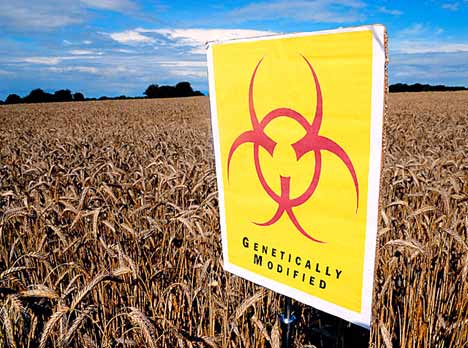The Egyptian government has apparently performed an astonishing U-turn on banning controversial Genetically Modified crops from the country. According to reports in the press earlier this month (hat tip: Treehugger and Reuters), authorities declared that Egypt had officially become the Middle East’s first GM-free nation. On 12 August, Egyptian Agriculture Minister, Amin Abaza, told the government news agency MENA:
“…it was necessary that all crops imported from abroad and exported from Egypt be accompanied by a certificate from the country of origin stating they are free of genetically modified materials.”
“No agricultural products especially wheat, corn and soya bean would enter except after examining samples from the cargo.”
But it was too good to be true apparently. The following day Reuters reported that the Ministry retracted these statements which had stirred a storm of controversy over the country’s agricultural policy.
An Egyptian ban on GM imports would represent an important precedent in the region – and a victory for ecology and consumers. Although they are not grown commercially in the Middle East, GM crops such as corn/maize and soya are imported in large quantities, entering the food chain as processed products and animal feed. Some countries, including Israel, have multi-million dollar industries dedicated to developing new GM varieties.
Since GM crops flopped in the western marketplace, notably Europe where retailers refuse to stock them due to consumer pressure, GM companies have been hunting for new pastures to grow their largely-untested technology. Lax regulation and consumer protection in the developing world makes it an ideal GM guinea pig and companies have already moved into India, China and Africa to grow GM. Even in the EU, where food containing GM must be labelled, millions of tonnes still sneak in ‘through the back door’ as imported animal feed. The resulting meat, milk and cheese, however, are not labelled GM. Scientific studies have shown that found animal fed on GMO have experienced “lesions in the gut, damage to body organs, unexplained deaths, and stunted growth in the young of animals reared on GMOs.”
GM imports – whether in Egypt or England – represent the thin end of the wedge. Contamination of organic and other non-GM crops is notoriously hard to control, thus creating a fait accompli, opening the door to more GM, whether people like it or not.
Whilst no consumer market exists GM products, demand for GM-free food is strong. By taking the bold decision to ban GM from its borders, the Egyptian government could give its food industry a competitive advantage by being able to label their products ‘GM-free’. It’s still not too late for Egypt to lead the way – and safeguard the health of its people, farm animals and environment.
:: Treehugger.
:: Reuters, Egypt says no GM food exports or imports.
::Reuters, Egypt denies banning GMO crop imports.
:: Soil Association, Silent invasion: the hidden use of GM crops in animal feed and GM crops: the health effects.




One thought on “Is Egypt back-tracking on GM crops ban?”
Comments are closed.